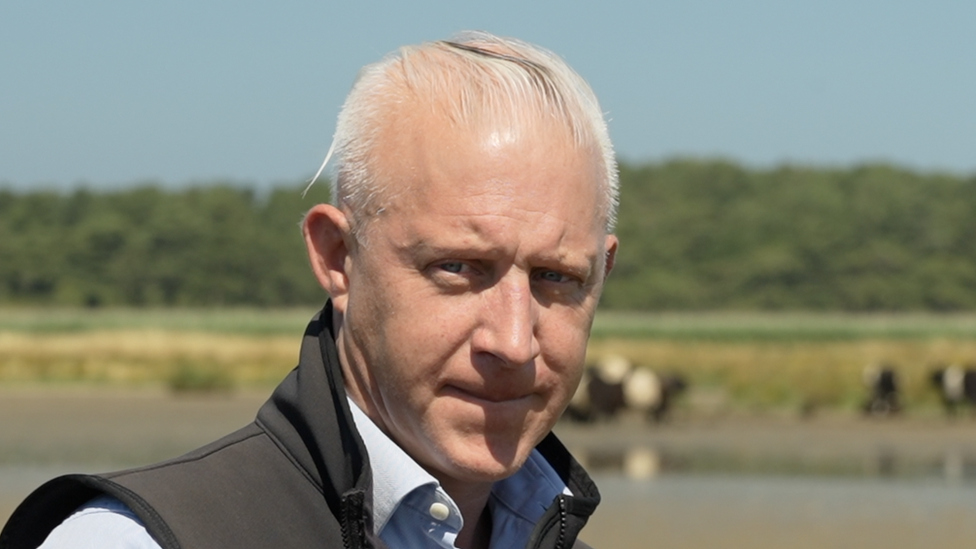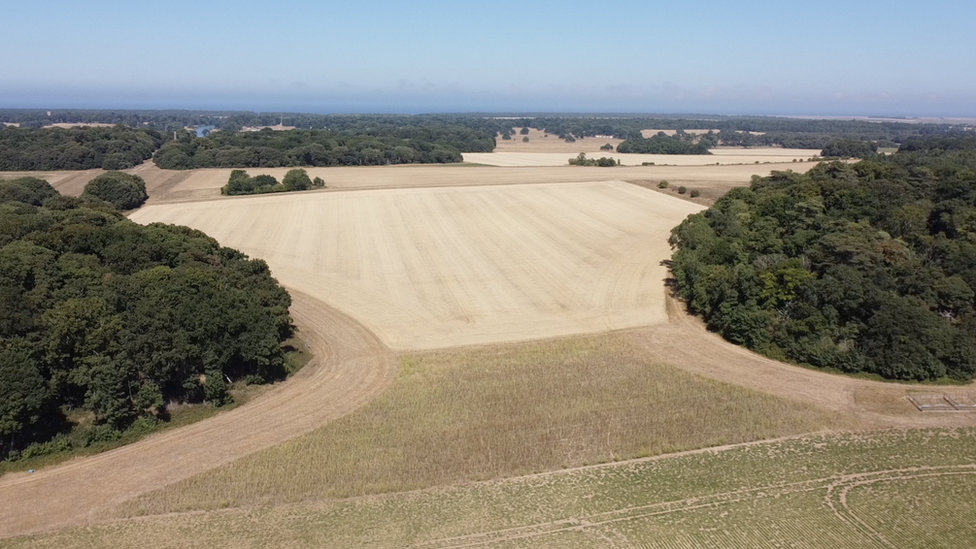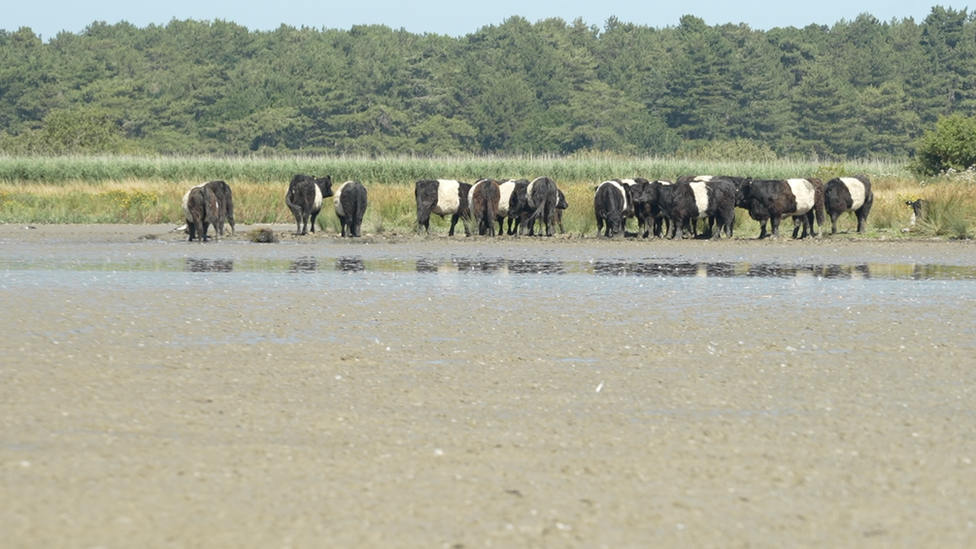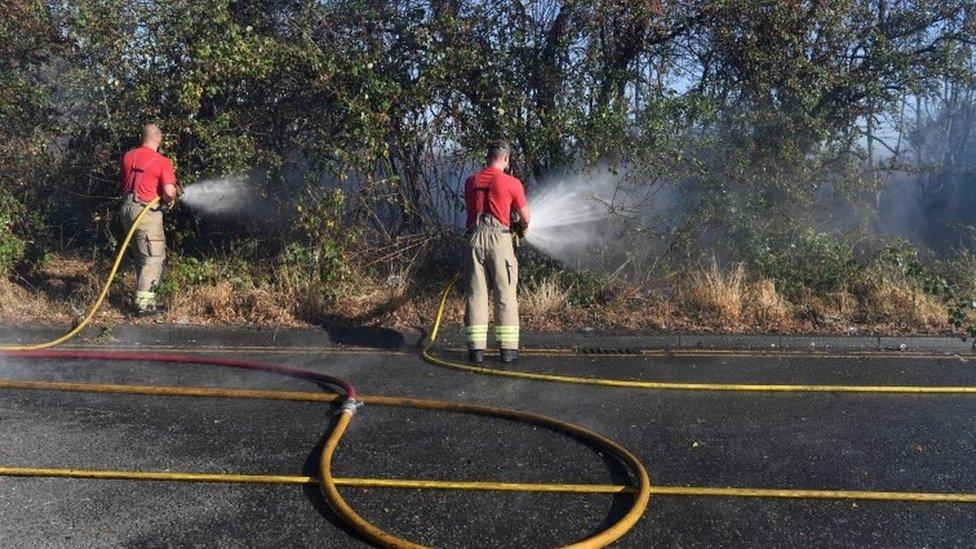Holkham Estate: Hosepipe ban would be 'common sense'
- Published

Jake Fiennes, the director of Holkham National Nature Reserve in north Norfolk, has joined calls for a hosepipe ban
A hosepipe ban across the East of England would make "complete common sense", an estate manager said.
Jake Fiennes, the director of Holkham National Nature Reserve in north Norfolk, said they were struggling to feed livestock due to the prolonged period of dry weather.
Meanwhile, farmers were struggling to grow crops on the Holkham Estate and establish crops for next year.
Anglian Water said it was not proposing or planning for any hosepipe bans.
A drought is expected to be declared in many parts of England later today.
The Met Office's four-day amber warning for extreme heat for southern England and parts of Wales has come into effect.

Holkham Estate said it was struggling to grow crops
Mr Fiennes said: "I think a hosepipe ban makes complete common sense, we've had a prolonged dry period for weeks, we haven't had any significant rain on the north Norfolk coast since the beginning of June.
"We're seeing the grass is dry and trees losing their leaves, it makes sense that we try to extract less of our natural resources when our natural resources are suffering."
He said measures were in place to help feed the estate's cattle.
Farmer James Beamish, meanwhile, said "time was ticking now" for sugar beet crops.
He said while they would normally expect to have 80 tonnes a hectare of raw beet, they would be looking at 30 or 40 tonnes this year.
"The crop is really suffering from drought stress," he said.
"The sugar beet factories open first week of October, so in seven weeks' time we could be harvesting this crop where at the moment it's just far too small to harvest and send in for processing."

The estate is also struggling to feed its livestock
Mr Beamish said although the estate had experienced the "easiest operational harvest" of cereals, the ground was "too hard and dry" to establish crops for next year, which could have a knock-on effect without a "significant amount of rain".
Concerns are also growing for next year's potato crop because the estate's four reservoirs are empty, he said.
Regan Harris, from Anglian Water, said: "Our resources are in a good place because we spend years and years investing in resilience in preparation for our region being the driest in the country."
South East, Southern, Welsh and Yorkshire water companies have already introduced hosepipe bans.
The Department for Environment, Food and Rural Affairs with the Environment Agency will decide whether or not to declare a drought after a meeting of the National Drought Group later.

Find BBC News: East of England on Facebook, external, Instagram, external and Twitter, external. If you have a story suggestion please email eastofenglandnews@bbc.co.uk
Related topics
- Published11 August 2022
